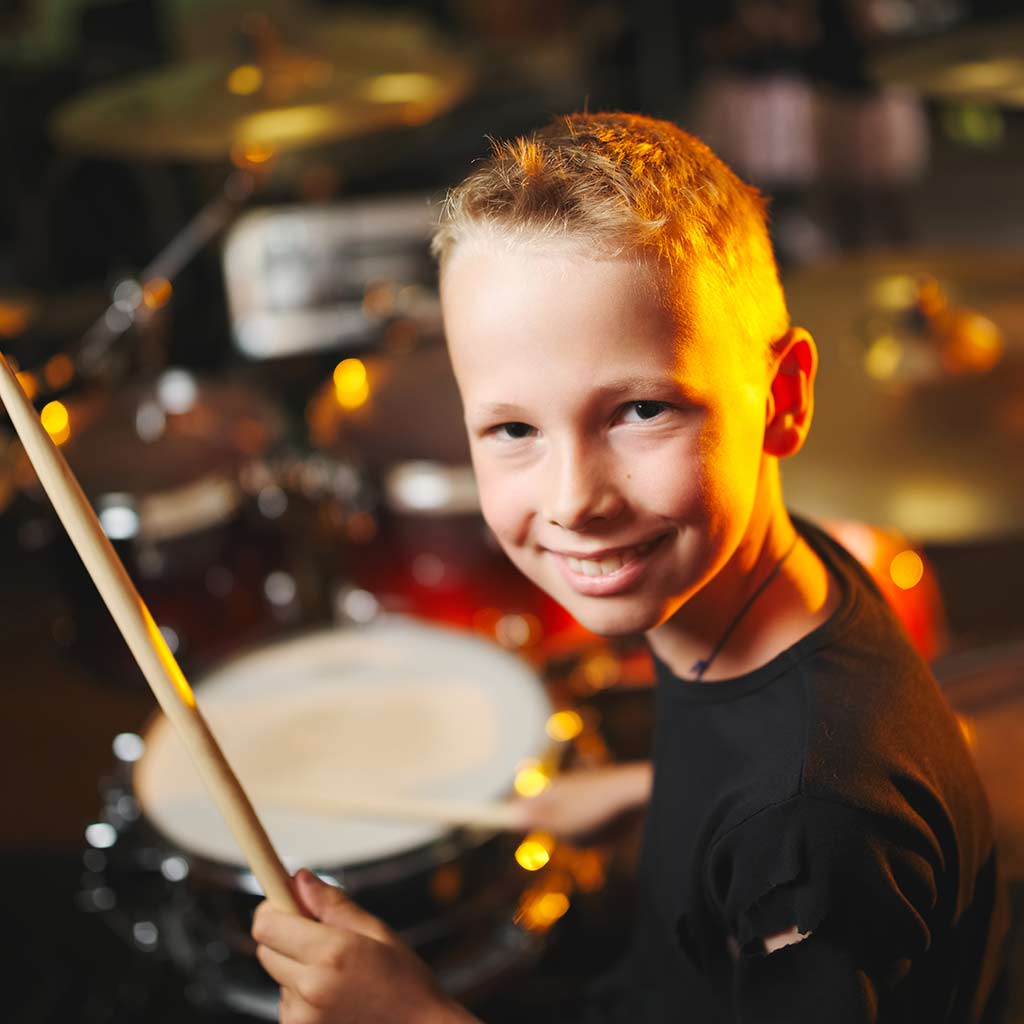All students of Excel Music learn to read music. Teachers will devise a customized curriculum for each student which will incorporate the style of music that the student wants to learn in addition to teaching music theory, history and other appropriate musical skills.
Drum Lessons
Drum set, band & orchestral percussion, mallet
instruments and ethnic percussion Drum set,
practice pad or mallet instruments are provided in
the lessons
- Recommended starting age: 8
- Recommended lesson length:
- Age 8-11, 30 minutes
- Above age 11, 60 minutes
Equipment needed: A good quality, drum pad (available from our office) or school percussion kit to practice at home in between lessons and, of course, drum sticks (we have those, too). Your instructor will let you know when the student is ready for a good, student-level drum set—$300-500. The teacher can also offer advice for purchase, as drum set buying can be a bit complicated.

Practice time: 15-20 minutes per day for beginners, increasing over time to at least an hour per day.
Starting age: : We recommend age 8 as a great age to start learning drums. Younger students will advance faster mentally than they do physically and can become frustrated by the challenge. Girls can have a bit more coordination than boys and can sometimes get started at age 7.
Additional info: Students can begin on either electronic or acoustic drums. Acoustic drums are naturally much louder but do offer a better learning experience as they have many more subtleties than electronic drums can offer. Daily practice is important because of the extensive muscle memory that is required to play drums and, once the student starts on drum set, the independence of playing different rhythms with different apendages.
